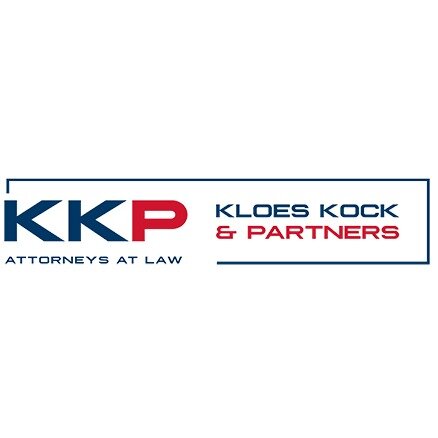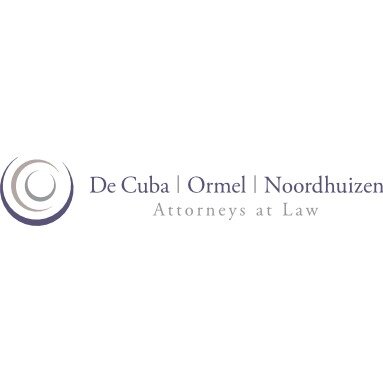Best Business Lawyers in Oranjestad
Share your needs with us, get contacted by law firms.
Free. Takes 2 min.
List of the best lawyers in Oranjestad, Aruba
About Business Law in Oranjestad, Aruba
Oranjestad, the capital of Aruba, is a bustling center of commerce and business activity. The island's economic landscape is largely shaped by tourism, real estate, and services. Aruba’s business environment is characterized by its stability, attractive tax incentives, and strategic geographical location, making it an appealing destination for entrepreneurs and established businesses alike. Understanding the local business laws is crucial for any individual or entity looking to operate within Oranjestad and ensure compliance with the island's regulatory framework.
Why You May Need a Lawyer
Engaging with business operations in Oranjestad can present a variety of legal challenges where the expertise of a lawyer becomes essential. Common situations include negotiating and drafting contracts, resolving business disputes, dealing with employment issues, ensuring regulatory compliance, handling mergers and acquisitions, protecting intellectual property, and navigating tax implications. A lawyer can provide guidance tailored to specific business needs, helping to avoid potential pitfalls and legal liabilities.
Local Laws Overview
In Oranjestad, several key legal areas are particularly relevant to businesses. Corporate law governs the formation, structure, and operations of businesses, while tax law outlines the fiscal obligations companies must adhere to under Aruba's regime. Labor laws, including regulations on employment contracts and workers' rights, are crucial for managing employer-employee relationships. Additionally, Aruba has specific compliance requirements and permits necessary for operating within certain industries. Familiarity with these local laws ensures that business activities align with legal requirements, promoting a harmonious business climate.
Frequently Asked Questions
What types of business entities can be established in Aruba?
In Aruba, you can establish several types of business entities, including corporations (NV), limited liability companies (VBA), general partnerships, and sole proprietorships. Each has specific requirements and benefits tailored to different business needs.
Are there special tax incentives for businesses in Aruba?
Yes, Aruba offers various tax incentives to attract foreign investment and stimulate economic growth. These include special tax rates for tourism-related businesses, reduction on import duties, and exemptions under the Freezone Aruba regime.
What are the essential permits required to start a business in Oranjestad?
Depending on the business type, essential permits may include a business license, operational permits for specific industries (such as hospitality or retail), and health and safety certificates. Additionally, businesses may need to register with the Chamber of Commerce and follow sector-specific regulations.
How can a business protect its intellectual property in Aruba?
Businesses can protect their intellectual property, such as trademarks, patents, and copyrights, by registering them with the Aruba Bureau for Intellectual Property. This provides legal protection and helps prevent unauthorized use.
What labor laws should businesses be aware of?
Aruban labor laws cover various aspects such as working hours, employee benefits, termination, and occupational safety. Familiarizing yourself with these laws is crucial for maintaining compliant and fair employment practices.
Can foreign investors wholly own an Aruban business?
Yes, Aruba allows 100% foreign ownership of businesses. However, foreign investors must comply with local laws, including obtaining the appropriate permits and licenses to operate legally.
Is there a minimum capital requirement for starting a business?
The minimum capital requirement varies depending on the type of business entity. For instance, establishing an NV may require a minimum capital, whereas a sole proprietorship might not have such requirements.
What are the benefits of registering a company in the Aruba Freezone?
Companies in the Aruba Freezone benefit from various incentives, including tax advantages, reduced tariffs on imports, and easier access to international markets. The Freezone is designed to encourage export-driven businesses.
How are business disputes resolved in Aruba?
Business disputes can be resolved through litigation in the Aruban courts or via alternative dispute resolution methods such as arbitration or mediation, which can be more cost-effective and faster.
What are the compliance requirements for maintaining a business in Aruba?
Businesses must adhere to ongoing compliance requirements including tax declarations, financial reporting, employment law obligations, and industry-specific regulations. Staying updated with current laws is essential for legal operation.
Additional Resources
For additional assistance, consider reaching out to the Aruba Chamber of Commerce for guidance on business registration and operation. The Aruba Investment Agency provides information on investment opportunities and incentives. Additionally, consulting with local law firms that specialize in business law can offer personalized legal advice tailored to your business needs.
Next Steps
If you require legal assistance in business matters, it is advisable to contact a reputable business lawyer with experience in Aruban law. Begin by identifying your specific legal needs, then consult with multiple lawyers to find the best fit for your situation. Ensure the lawyer you choose has a strong understanding of both local and international business laws if your operations cross borders. Setting up an initial consultation can help you gain insights into the legal intricacies of your business and ensure you are taking the right strategic steps.
Lawzana helps you find the best lawyers and law firms in Oranjestad through a curated and pre-screened list of qualified legal professionals. Our platform offers rankings and detailed profiles of attorneys and law firms, allowing you to compare based on practice areas, including Business, experience, and client feedback.
Each profile includes a description of the firm's areas of practice, client reviews, team members and partners, year of establishment, spoken languages, office locations, contact information, social media presence, and any published articles or resources. Most firms on our platform speak English and are experienced in both local and international legal matters.
Get a quote from top-rated law firms in Oranjestad, Aruba — quickly, securely, and without unnecessary hassle.
Disclaimer:
The information provided on this page is for general informational purposes only and does not constitute legal advice. While we strive to ensure the accuracy and relevance of the content, legal information may change over time, and interpretations of the law can vary. You should always consult with a qualified legal professional for advice specific to your situation.
We disclaim all liability for actions taken or not taken based on the content of this page. If you believe any information is incorrect or outdated, please contact us, and we will review and update it where appropriate.
Browse business law firms by service in Oranjestad, Aruba
Oranjestad, Aruba Attorneys in related practice areas.











